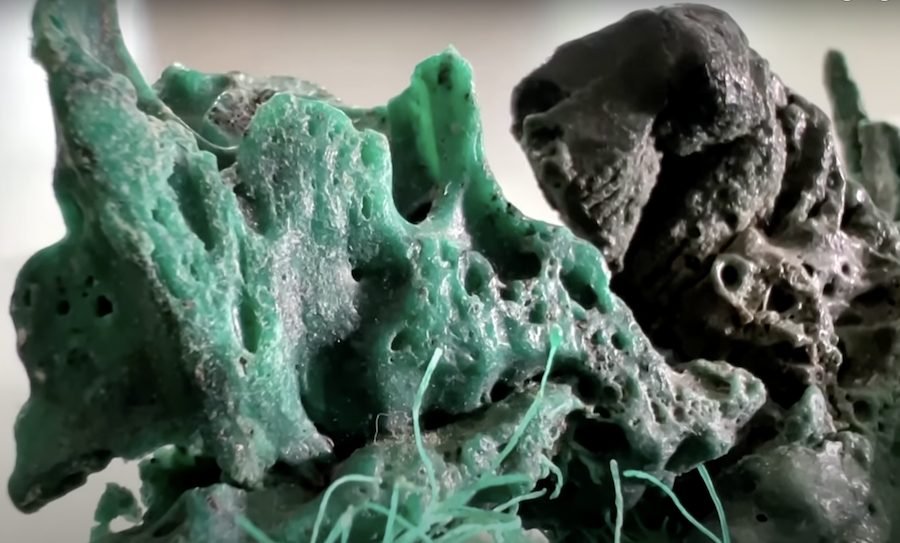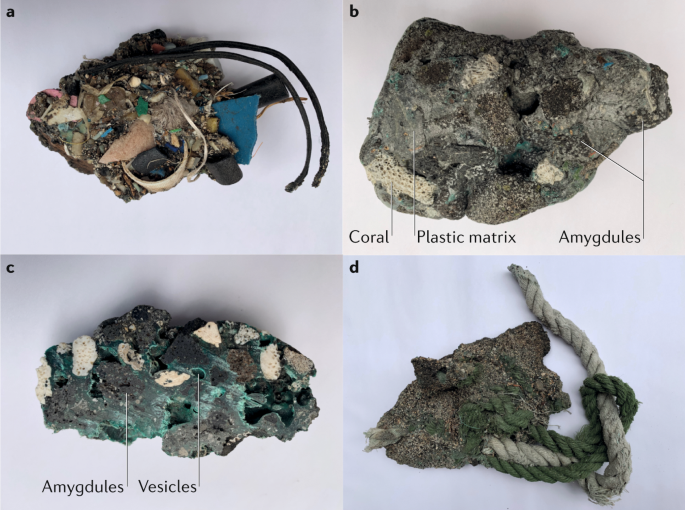Scientists have discovered rocks containing man-made plastic on all five inhabited continents, indicating the widespread presence of plastic pollution in the natural environment. A recent study in Environmental Science & Technology discovered man-made plastic polymers in rocks along coastlines and inland areas of 11 different countries around the world.
Almost ten years ago, scientists discovered “plastiglomerates” for the first time on a beach in Hawaii.

After campfires on Kamilo Beach in Hawaii, various materials such as molten plastic, sand grains, rock fragments, coral, shells, and wood debris have been observed sticking together. These formations have been regularly discovered on beaches across different islands and coastlines.
Plastic rocks are not only formed by melting plastic debris in a fire and letting it cool, but can also be formed when waves crash against rocks in the ocean and cause plastic to stick to the surface of the rocks.

The scientists believe that the observed chemical bonding may have occurred due to the plastic being exposed to sunlight and undergoing oxidation.
According to scientist, worldwide, the presence of plastic can reduce the variety of microorganisms and release tiny particles of plastic, which may ultimately enter the bodies of humans and animals. To put it briefly, this worrisome pattern does not indicate a promising outlook for the future of natural environments worldwide.

Plastiglomerate is a significant threat to the sustainability of the ocean, the blue economy, and the health of humans.
Reference- Journal Environmental Science & Technology, Newsweek Report, BBC, National Geographic






